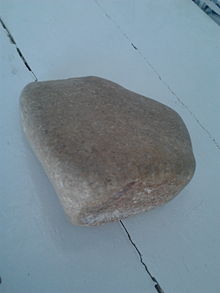QueenofHerts
Senior Member
- Messages
- 99
- Reaction score
- 9
- Gender
- Female
- Religion
- Islam
If someone is in a lot of pain and cant do wudu then what is recommended for such a person?




Tayammum (or 'dry ablution') is a method of cleansing oneself using clean sand. It serves as a replacement for both Wudu (partial ablution) and Ghusl (complete ablution) but only under special circumstances.
The Holy Quran says:
"And if you are ill or on a journey or one of you comes from the place of releiving himself (or herself) or you have contacted women (or men i.e. had sexual intercourse) and find no water, then seek clean earth and wipe over your faces and your hands (with it)." Al Quran, [4:43]
Tayammum can be performed under the following circumstances:
Please remember that Tayammum is not valid if there is no hindrance in the way of performing Wudu and Ghusl. All the things that invalidate Wudu, invalidate Tayammum, too.
- When there is no water.
- When there is a shortage of water (and using the water present may cause problems).
- When a source of water is very far away, or it is dangerous to visit the place where water is located.
- When a person is suffering from an illness that will be worsened by the use of water.
- When a prayer is (unintentionally) delayed and performing Wudu or Ghusl will result in a Qadha (i.e. the time of the prayer will be over.)
Step 1
Find clean earth.Find a place where there is soil, sand or rock. Make sure that this place is clean and entirely free of all najasah (things which make one ritually unclean).
Step 2
Make the intention. Before performing Tayammum, it is necessary to make its intention (niyyat) in your heart. You should mentally prepare yourself for the performance of an act of purification.
Step 3
Say Bismillah. Recite bismi-llāhi ar-raḥmāni ar-raḥīmi (In the name of Allah, the most Gracious, the most Merciful).
Step 4
Strike your hands on the ground.This act will most likely lift some dust. Brush it off and gently rub your face with your hands, beginning (as in Wudu) from the hairline to where the facial hair starts, and from the lobe of one ear to that of the other.
Step 5
Strike your hands on the ground again.Brush off the dust and intertwine the fingers of both hands. Using your left hand, rub your right arm from the fingertips up to the elbow, and back along the inner arm to the fingertips. Repeat this for your left arm.
Remember that once water becomes available, Tayammum is automatically invalidated. If a person has to perform both Wudu and Ghusl, but is obliged to perform Tayammum instead, (s)he need not perform Tayammum twice. Once is enough, and will serve as a replacement for both.
http://www.howtodothings.com/religion-spirituality/how-to-perform-tayammum-dry-ablution


I'm not sure but in hanafi madhab If you have minor cuts ,you can wipe over bandage ,and if you have a fear of harm on wiping you can leave injured area.tayammum is only for exceptional cases,It will better to ask to any scholar.I have a genuine question, I have cuts/ broken skin on one of my arms, lets say I was in a place with dirty water so I wouldn't want that water to get into the cuts in my arms, nor would I want to rub my hand over it if they were dusty. How would you perform wudu?
Follow along with the video below to see how to install our site as a web app on your home screen.
Note: This feature may not be available in some browsers.
